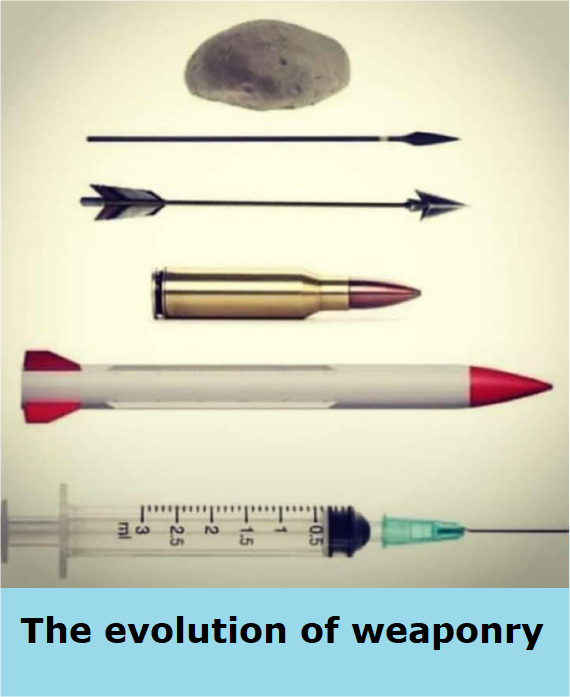The Church of Modern Medicine
October 9, 2021

FROM an article at Health Impact News by Dr. David Stewart, Ph.d.:
In Dr. Robert Mendelsohn’s book, Confessions of a Medical Heretic, he describes medicine as a practice of religion rather than a practice of science. Doctors practice what they believe, not what they can substantiate by valid science. According to Mendelsohn, in the religion of medicine, physicians are the high priests and their ecclesiastical robes are their white coats. Hospitals are the temples where many holy waters are dispensed in the form of drugs, antibiotics, and vaccines. People tithe to the church of medicine by dutifully paying their insurance premiums. The word “prescription” is very close to the term “prescriptural,” thus implying a scriptural basis for their use. The Holy Bible containing the scriptures of medicine is the Pharmaceutical PDR. For millions of people, their faith and confidence in the religion of medicine is far greater than their belief in the institutions of worship they may attend. In a crisis, they would sooner call 911 than call upon God in prayer.
Dr. Mendelsohn was a practicing pediatrician at the Michael Reese Medical Center in Chicago, a professor at the University of Illinois School of Medicine, Chairman of the Illinois State Licensing Board, and appeared on national television many times. He is author of another book entitled, How to Raise a Healthy Child in Spite of Your Doctor, where he states, “When it comes to treating a sick child, one grandmother is worth two pediatricians.” He also often said, “If you always assume your doctor is wrong, most of the time you will be right.” In Dr. Mendelsohn’s opinion, “The best of medicine is emergency medicine.” I agree. When it comes to chronic disease, they have little or nothing to offer – no cures, only treatments and disease management.
I don’t want to imply that there is no use for medical care as we have it today. If I were in a serious accident with a massive head injury, damage to my internal organs, or a broken limb, I would want to go to the nearest emergency room as fast as possible with the best physicians and nurses on staff. Allopathic medicine is wonderful in a crisis and saves many lives. Emergency medicine is what they do best. In a traumatic situation where you could die unless immediate action is taken, allopathy with all of its drugs, surgeries, equipment, and other paraphernalia can be just what you need to get through the crisis.
But as for healing, allopathic medicine doesn’t offer much. After you have been rescued by allopathic measures from imminent death in an emergency situation, the healing is still up to you by seeking other modalities. And when it comes to chronic illness like cancer, arthritis, diabetes, or cardiovascular disease, allopathy has no cures and usually makes matters worse.
One reason medical practitioners do best in a crisis is because that is the emphasis in their training. In fact, in America, 85% of medical expenditures are for crisis applications – responding to accidents, acute life-threatening conditions, or patching up the body when seriously advanced disease has occurred and death may be imminent. Meanwhile, less than 6% of health care expenditures are for prevention and wellness education.
True healing can only take place with the participation of the patient on all levels – mental, spiritual, emotional, and physical. The idea of “leaving it to the doctor” leads to unending sickness and poor health. Health care and health maintenance is something you do for yourself, with the help of God. Not something for which you pay your money and continue to do as you please without altering your lifestyle.
Health care is your responsibility – not the government’s, not the insurance company’s, not the health care system’s, and not the doctor’s.
Read more here.
